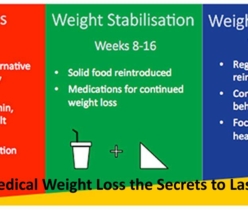Protein is an essential nutrient that plays many important roles in the body, including building and repairing tissues, producing enzymes and hormones, and supporting the immune system. Adequate protein intake is important for maintaining muscle mass and strength, as well as promoting overall health and well-being.
When protein intake is too high, the body can have trouble processing and excreting the excess nitrogen produced during protein metabolism. This can lead to a build-up of waste products in the bloodstream, which can put a strain on the kidneys and liver. In addition, a high-protein diet can also increase the risk of certain health conditions, such as osteoporosis, kidney stones, and certain types of cancer. It’s important to balance your intake of protein with other key nutrients like fruits, vegetables, and whole grains.

How much protein is too much?
Depending on variables such as age, gender and physical activity, different daily protein intakes are recommended. However, as a general guideline, the daily intake is 0.8 grams of protein per kilogram of body weight. This equates to about 56 grams per day for the average adult male and 46 grams per day for the average adult female. However, athletes, pregnant women and the elderly may need more.
Consuming more than the recommended daily protein intake is considered excessive. The upper limit for protein intake is set at 2 grams per kilogram of body weight per day. Consuming more than this amount can put a strain on the kidneys and liver and increase the risk of certain health conditions, such as osteoporosis and kidney stones.
What Happens When You Have Too Much Protein?
If you eat more protein than your body needs, the excess protein is broken down and excreted by the liver and kidneys. However, this process can put a strain on these organs, especially if you eat excessive amounts of protein over a long period of time.
Excess protein can also lead to the production of waste products like urea, which can cause the blood to become more acidic. This can lead to several health problems, including:
- Osteoporosis: High protein intake can increase calcium loss from bones, which can lead to osteoporosis.
- Kidney stones: A high protein intake can increase the risk of developing kidney stones because it can lead to increased excretion of certain substances in the urine, such as: B. Oxalate, which can form stones.
- Cancer: High protein intake, particularly from animal sources, has been linked to an increased risk of certain types of cancer, such as colon cancer.
- dehydration: High protein intake can increase the amount of water that needs to be excreted by the kidneys, which can lead to dehydration.

Signs that show up when you eat too much protein
Eating too much protein can cause a range of signs and symptoms, some of which include:
1. Weight gain
Eating excess protein can lead to weight gain, especially if the protein comes from high-fat sources like red meat.
2. dehydration
High protein intake can lead to dehydration. So the next time you’re feeling dehydrated, it could be because you’re eating too much protein.
Also read: Common signs of dehydration to look out for
3.Kidney problems
Eating too much protein can put a strain on the kidneys, which can lead to kidney damage or kidney stones.
4. Bad breath
High-protein diets can create a strong odor on the breath. It is caused by the breakdown of amino acids in the body.

5. Constipation
A high-protein, low-fiber diet can lead to constipation.
Fatigue: Eating too much protein can lead to fatigue as the body may have trouble processing and excreting the excess nitrogen produced during protein metabolism.
Also read: Do you suffer from stomach problems? Follow these tips that may help you poop
6.Stomach Discomfort
Consuming too much protein can cause stomach upset, bloating, and bloating.
7.Gout
A high-protein diet can increase the risk of gout, a type of arthritis caused by the buildup of uric acid crystals in the joints.
Keep in mind that some of these symptoms can be caused by other factors. As such, it is always best to consult a doctor to rule out any underlying health issues.





